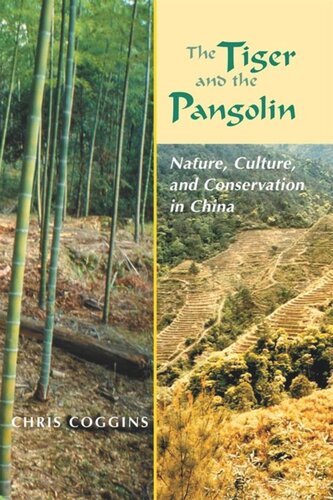

Most ebook files are in PDF format, so you can easily read them using various software such as Foxit Reader or directly on the Google Chrome browser.
Some ebook files are released by publishers in other formats such as .awz, .mobi, .epub, .fb2, etc. You may need to install specific software to read these formats on mobile/PC, such as Calibre.
Please read the tutorial at this link: https://ebookbell.com/faq
We offer FREE conversion to the popular formats you request; however, this may take some time. Therefore, right after payment, please email us, and we will try to provide the service as quickly as possible.
For some exceptional file formats or broken links (if any), please refrain from opening any disputes. Instead, email us first, and we will try to assist within a maximum of 6 hours.
EbookBell Team

4.1
20 reviewsThis original and wide-ranging work examines historical perceptions of nature in China and the relationship between insider and outsider, state and village, top-down conservation policy and community autonomy. After an introduction to the history of wildlife conservation and nature reserve management in China, the book places recent tiger conservation efforts in the context of a two-thousand-year gazetteer of tiger attacks--the longest running documentation of human-wildlife encounters for any region in the world. This record offers a unique perspective on the history of the tiger as a dynamic force in the political culture of China.
While the tiger has long been identified with political authority, the Chinese pangolin and its earthly magic have exerted a powerful influence in the everyday lives of those working and living in the fields and forests. Today the tiger and the pangolin, government officials and village communities, must work together closely if wildlife habitat conservation programs are to succeed. Extensive fieldwork in the Meihuashan Nature Reserve and other protected areas of western Fujian have led the author to advocate a landscape ecological approach to habitat conservation. By linking economic development to land use practices, he makes a strong case for integrating nature conservation efforts with land tenure and other socio-ecological issues in China and beyond.